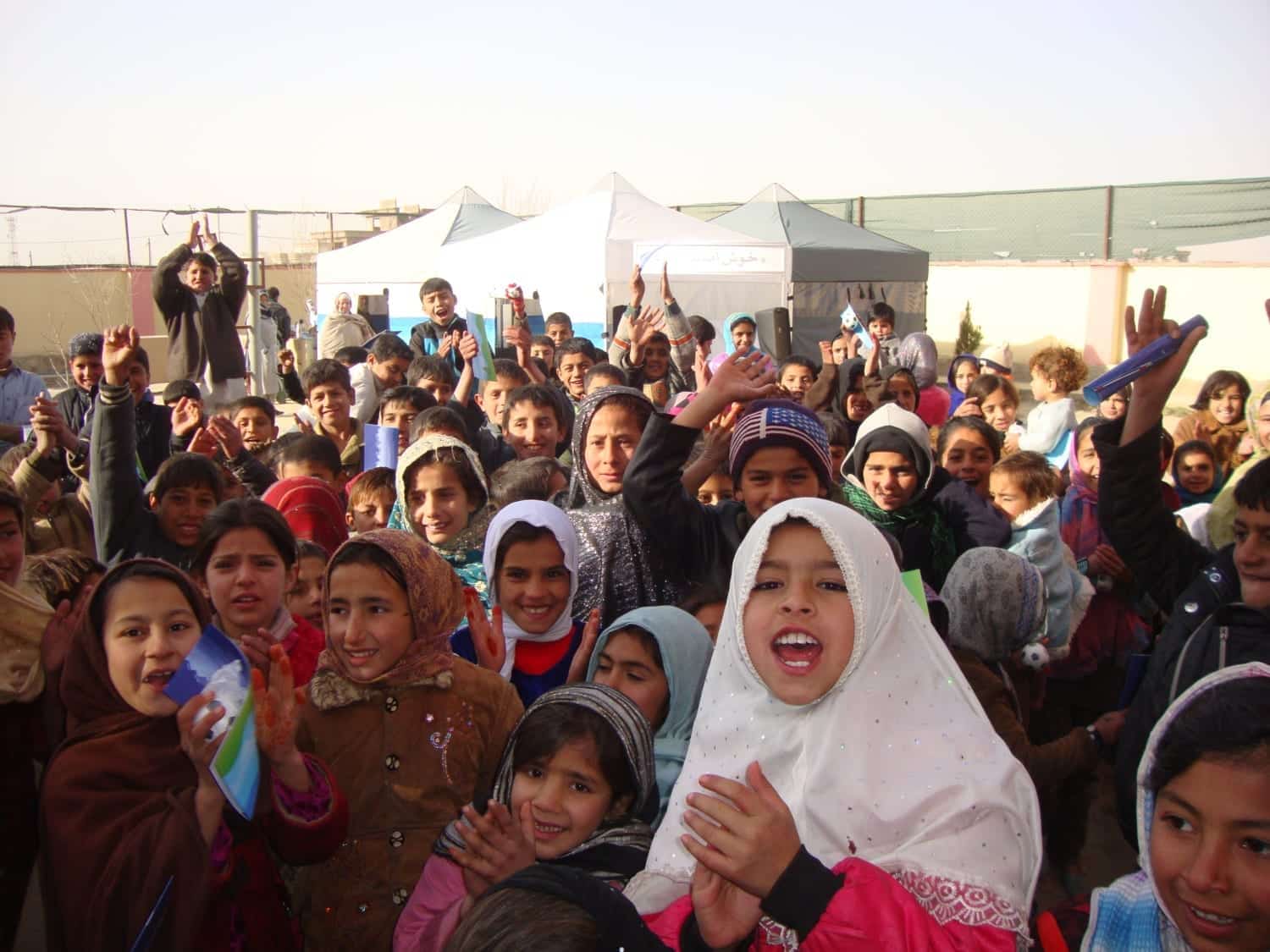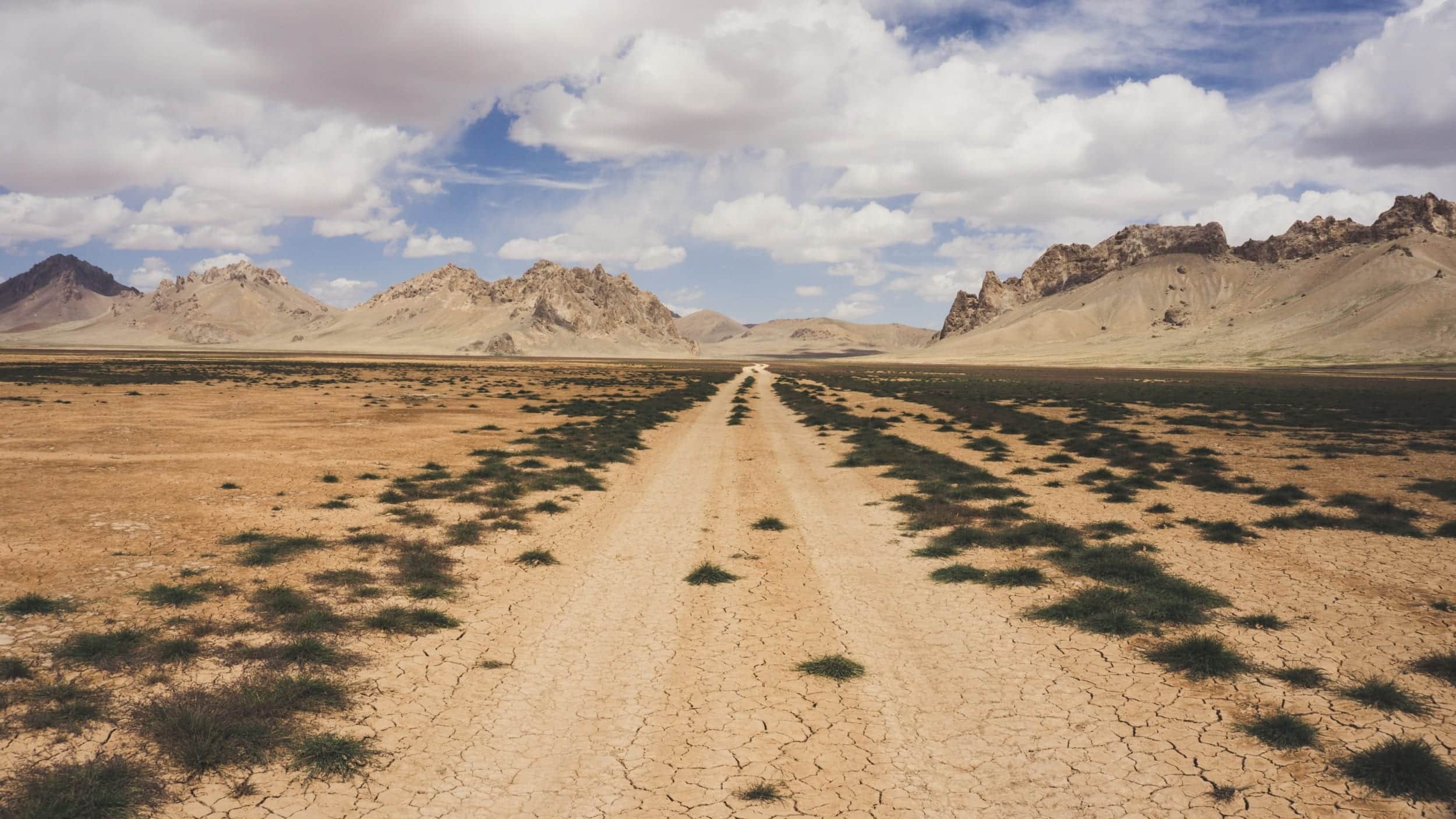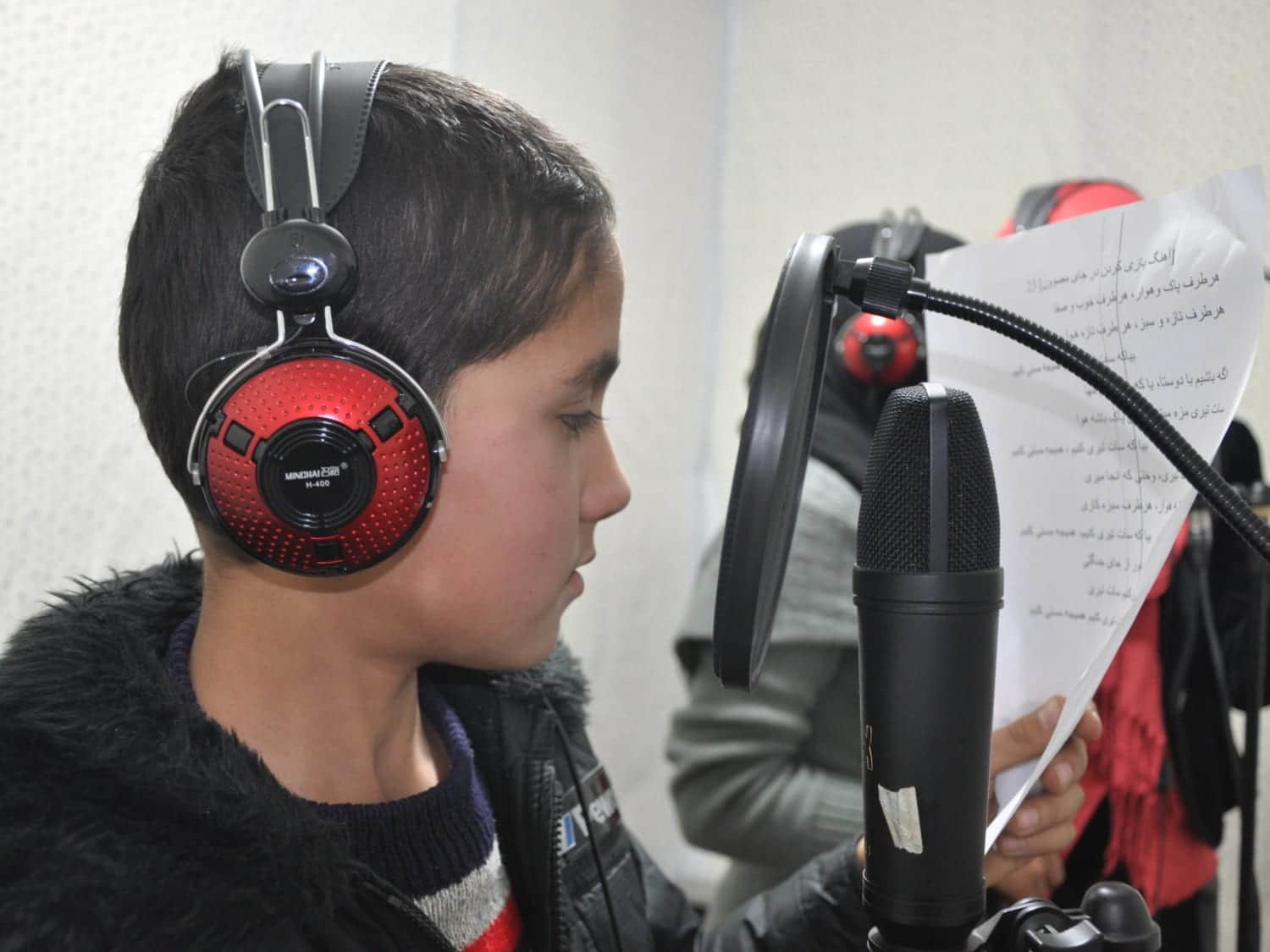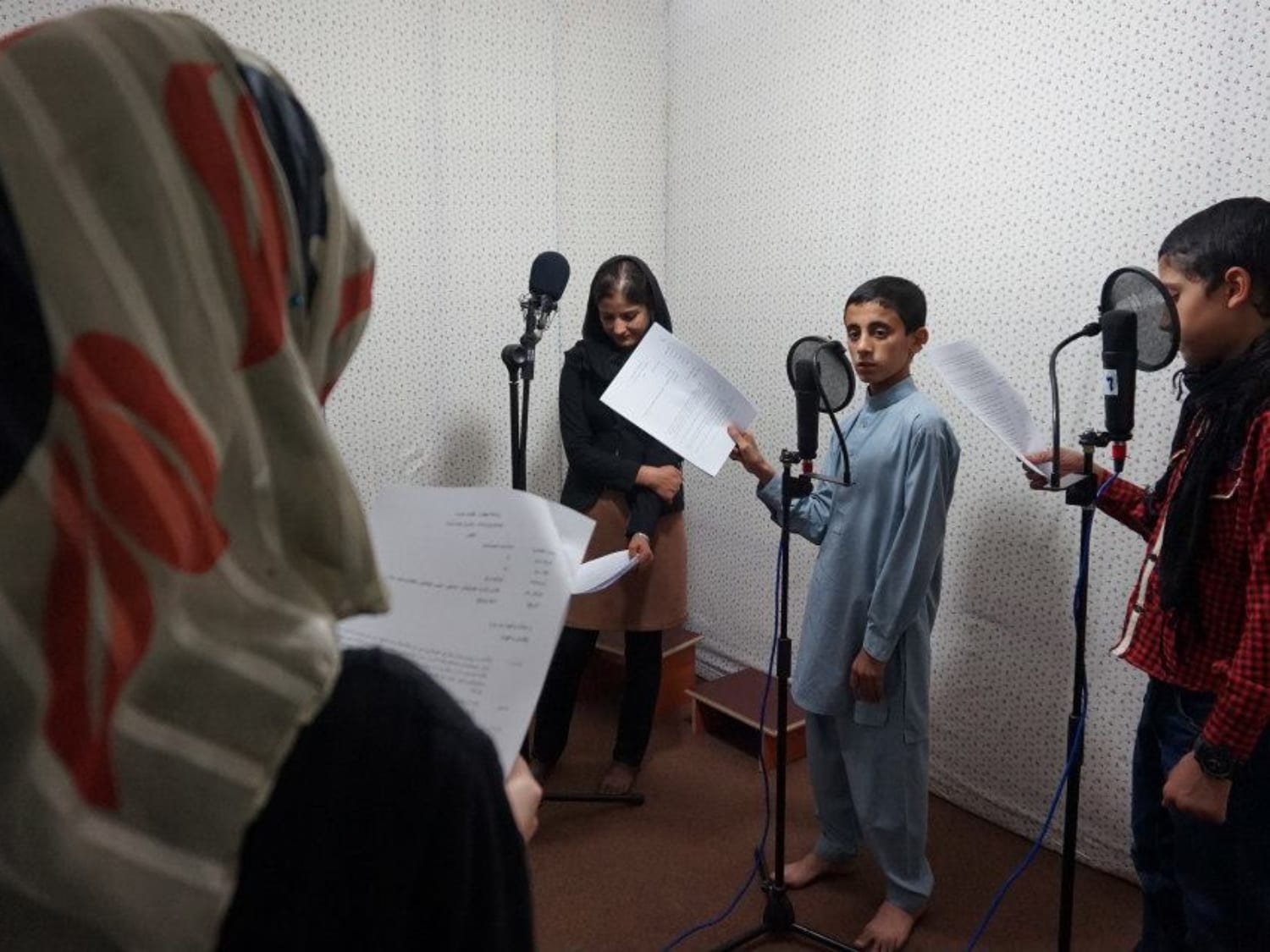

Build this war-torn country: how a nation of youth are returning to school
“I think my future will be bright because I study. I will build this war-torn country.” - EAI Listening Circle Participant, Helmand Province
A Project of —
Youth Today: Our Country, Our Future

In a nation of youth, education is key. Yet while in 2010, 60% of Afghanistan’s population was under 25, a mere 23% of guys and 7% of girls attended high school. These girls grow up to be women who are excluded from society, and boys become men who live on the fringes, drawn into insurgent violence by terrorist groups.
In the Southern provinces, one listening group member told EAI, “You may hardly find a literate woman in a big village.” Another said that in the south of Afghanistan, where the security situation is fragile, “Not letting girls go to school leads them to be backward and lack courage. So they can never defend their rights or express their voices.” A chilling example comes from one listener’s trip to a nearby town. “I went to Pakteeya and witnessed no women in the city, and it was confusing for me. I asked a man why there were no women in the area. He responded that women had no right to leave their houses.”


With scant opportunities, young women and men alike have learned that there is little value to education. Yet EAI’s radio program “Youth Today: Our Country, Our Future” gave youth in Afghanistan a different perspective. This excerpt from the episode “Youth and Their Patriotic Duty” shows an alternative to apathy, a way to love your country without resorting to violent extremism.
Zalmai: Maiwand! Hey, Maiwand!
Maiwand: What’s up, man? Why do you look so mad?
Zalmai: I get mad every time I see you because you’re always studying! Let’s go somewhere!
Maiwand: Zalmai, I have to study because I have an exam tomorrow.
Zalmai: Ugh, you’re so annoying! Let’s go to a park or somewhere with the guys and just hang out for a while!
Maiwand: Zalmai! I can’t go with you, whether you get mad or not. I have an exam tomorrow and I have to study, please!
Zalmai: What do you think is going to happen if you study more? There’s no point in studying so much. My uncle didn’t study, and look, he’s retired at home now.
Maiwand: Listen, if I don’t study and you don’t study, who will build this country and how can we improve? We’ll always be dependent on others. I want to do something with my life.
Zalmai: (claps) Wow! What a speech! Too bad it’s not possible to build a country by studying.
Maiwand: If we had lots of educated people in the country, we’d be able to rebuild and progress faster. The more educated people we have, the greater our country will be.
Zalmai: Dude! You’re so serious! You know, when I was studying, no one studied country-building. Everyone was just trying to get a good job and earn money, but you’re so patriotic about it.
Maiwand slowly convinces his less studious friend that working hard in school is good for him and for the country. The episode goes on to show the positive outcomes for Maiwand as a result of his diligence and long-term vision for his future.
This programming is rooted in the realities and challenges Pashtun youth face. Indeed, after listening to the program, these young people told EAI that education was now a priority in their lives. “My first responsibility is to continue my education,” said one listener, “and afterwards I will pay attention to housework.”
Education and seeking knowledge are the responsibilities of youth. It is the responsibility of all parents to send their children to school.” EAI Listening Circle Participant
Helmand Province